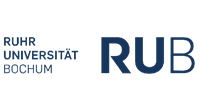Lo que se sabe de Hervás: ideas lingüísticas, errores y revitalización de su figura en el marco de la historiografía lingüística
Abstract
The works of the ex-Jesuit Lorenzo Hervás y Panduro (1735-1809) represent one of the most relevant contributions to 18th-century Linguistics. In particular, his linguistic texts can be classified into three strands: 1) treatises discussing the origin of language and the development of speech, 2) treatises covering the origin and evolution of languages across time and their relationships and 3) materials developed to study the former topics. The analysis of Hervás' contributions to these themes shows the implementation of an innovative method which allowed him to achieve several original findings linked mainly to the description of the languages of the world and their distribution in linguistic families. However, despite the significance of his conclusions, traditionally Hervás' works haven't been exhaustively scrutinized, due to several intrinsic and extrinsic reasons, hence it is common to come across errors and inaccuracies on the works that mention his contributions to the history of linguistics and science; only recently several scholars have tried to restore Hervás' role in the history of linguistics.
License
Copyright (c) 2015 Mara Fuertes Gutiérrez

This work is licensed under a Creative Commons Attribution 4.0 International License.



